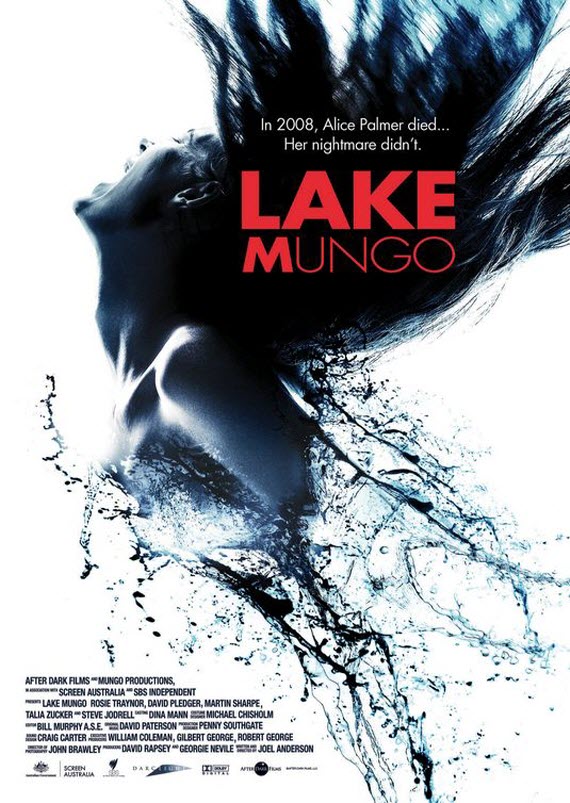Starring: Rosie Traynor, David Pledger, Martin Sharpe, Talia Zucker Directed by: Joel Anderson
 I hate to beat a dead horse, as The Blair Witch Project and The Last Broadcast have both already been reviewed by yours truly, but with the stunning success of Paranormal Activity and the recent release of Paranormal Activity 2, I shall throw caution to the wind and review another faux-documentary right here in these very pages.
I hate to beat a dead horse, as The Blair Witch Project and The Last Broadcast have both already been reviewed by yours truly, but with the stunning success of Paranormal Activity and the recent release of Paranormal Activity 2, I shall throw caution to the wind and review another faux-documentary right here in these very pages.
Set up documentary style, Lake Mungo begins with the Palmer family recounting the disappearance of their daughter Alice (Talia Zucker) while picnicking near the aforementioned lake in Australia. The family alerts the authorities, and after a day’s worth of searching, Alice’s body is discovered at the bottom of the lake.
The Palmers try to carry on their life in as normal manner as can be expected after such a travesty. But strange happenings start to occur. Weird noises are heard throughout the house. Their son, Mathew (Martin Sharpe), suddenly has a rash of bruises appear all over his body. A spectral figure resembling Alice shows up in a picture taken by Mathew, an aspiring photographer.
Based on the apparition, the family decides to put video cameras around the house in hope of catching an ethereal Alice in the hallways. Upon watching the videos, Alice is visible in much of the footage, sometimes stalking the hallways, sometimes as a reflection in a mirror or vase, and almost always effectively creepy. As the eerie events start to culminate, The Palmers seek the help of parapsychologist Ray Kemeny (Steve Jodrell) to discover why Alice might be haunting their home.
Lake Mungo is presented as a completed documentary as opposed to “raw footage.” After the plot of the film is presented to us, it is then seemingly resolved in most unexpected fashion half way through the movie. This sort of red herring is commonplace in horror films, but Lake Mungo seems to have some trouble finding its footing after it self-destructs its entire storyline. It introduces more questions and more possibilities, but they all seem a little half-baked.
However, the acting and direction in the film are well above average. Underlying the overarching plot is a subtle undercurrent, and watching as they discuss their loss with the film crew and later with Ray adds a weight throughout the film absent from other films in this genre. Some may complain about the pacing of the film. While it does drag in spots, I never felt bored.
When it comes time to wrap up the film there are some plotlines seemingly forgotten and some questions unanswered, both purposely and otherwise, but the ending narrative is flawless, leaving me not only touched, but also running a chill up my spine. Lake Mungo may make some provisions to try and keep the average film viewer interested, but if you overlook some of its flaws you will find a pitch perfect ghost story.
Written by Ryan Venson
